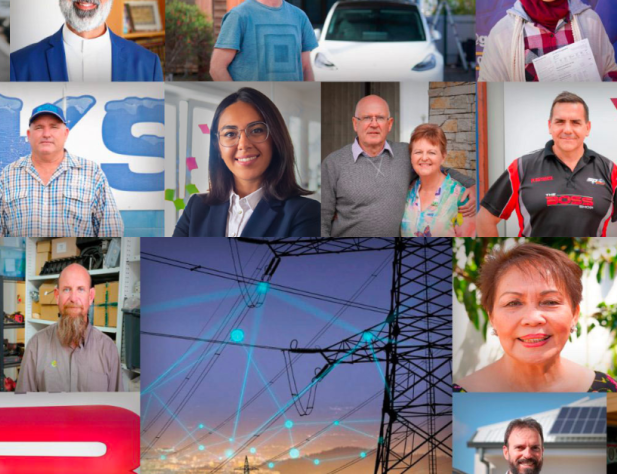Most of us don’t spend much time thinking about what we expect from our energy service providers—until something goes wrong. A shocking bill, confusing charges, misleading information when trying to install solar, or trouble getting help when you need it, can quickly turn trust into frustration.
So, here’s the question: should we just hope energy companies do the right thing, or should they be required to? Is treating customers fairly and ensuring they’re getting a good outcome from an energy product or service a nice ideal—or a real, enforceable duty?
We believe there is a real and pressing need for a consumer duty to be introduced in the energy sector. Here’s why.
Our energy system is evolving, and so are the risks and harms consumers experience
As Australia’s energy system transitions to a decarbonised, decentralised, and digitalised future, regulators face increasing pressure to balance economic efficiency—explicit in the National Energy Objectives—with other goals such as consumer protection, equity, and fairness, the details of which are still emerging.
Our Household Energy Consumer Research suggests that many consumers would benefit from learning about, or being reminded, of the easy to do, no cost actions that could help them reduce their energy use and costs.
Resources for households and small businesses
(Households) How to reduce energy use (Small businesses) Save energy and money
Energy literacy is limited across Australian households, and even more so across households at risk of energy vulnerability. As a result, the emergence of new products and services – and the unavoidable increasing complexity of the system – are likely to heighten the risk of poor outcomes for consumers.
Despite a vast body of prescriptive laws and regulations, consumers continue to experience inequity and occasional harm in the energy system. Dr Ron Ben-David, in his report, ‘Minimising Harm for a Successful Energy Transition,’ describes harm in the energy market as any process, treatment, or outcome that causes consumers to question whether the market serves their interests. This goes beyond affordability concerns, to include contractual harm, complexity, incomprehensibility, and loss of confidence.
The report further emphasises that complexity undermines confidence and that “incomprehensibility subverts trust.” Crucially, it warns that if consumers lose confidence in the market and how it's regulated, the energy transition itself is at risk. Together, these insights reveal harm as a broad and layered concept.
More recently, the AER’s findings from its review of payment difficulty protections in the National Energy Customer Framework identified 13 opportunities to improve the framework, including:
- Making it easier to identify who needs help
- Improving awareness and accessibility of assistance
- Making support more effective
- Ensuring disconnection is a last resort
- Reducing harm from disconnection
The AER's review finds that current protections are not fit for purpose. Instead, assistance needs to be more effective, and tailored to individual circumstances as a one-size-fits-all approach contributes to harm. These findings reinforce the urgent need for a consumer duty in the energy sector—one that ensures tailored, effective support and actively minimises harm for all energy consumers.
As outlined in our 3-Year Plan, Energy Consumers Australia is calling for an overarching obligation to ensure better consumer protections and outcomes for consumers. We want to ensure that energy providers are guided by principles and standards rather than prescriptive rules.
What is a duty of care?
A duty of care represents a fundamental shift in regulation—from expecting consumers to navigate and manage the complexities of the energy market, to requiring providers to act responsibly, fairly, and transparently in the design and delivery of their products and services.
As Juan Carlos Izzaguirre, a global expert in financial consumer protection puts it, a duty of care moves us from a "buyer beware" to a "seller beware" approach—one that embeds accountability throughout the system.
This is the foundation of an outcomes-based regulation, meaning providers are responsible for delivering fair, practical outcomes, such as ensuring customers understand offers, access support when facing payment difficulty, or avoid signing up to unsuitable plans.
Under the AER’s potential framework for reform, energy providers would be required to deliver good outcomes by acting proactively, reasonably, and demonstrably in consumers’ interests. This would include:
- Contracts that meet consumer needs
- Clear explanations around energy supply and asset control
- Fair, timely access to dispute resolution
- Transparent information to assess value and suitability
- Services that perform as expected
- Ongoing access to energy during hardship
[A duty of care] is the foundation of an outcomes-based regulation, meaning providers are responsible for delivering fair, practical outcomes, such as ensuring customers understand offers, access support when facing payment difficulty, or avoid signing up to unsuitable plans.
This outcomes-based approach has already gained traction in other sectors. In financial services, for example, Australia’s Corporations Act requires providers to operate efficiently, honestly, and fairly—with enforceable penalties introduced in 2019. The United Kingdom has introduced similar duties through the Financial Conduct Authority (FCA) and is now exploring an energy-specific duty through Ofgem.
These reforms have contributed to raising service standards and helped rebuild consumer trust in sectors where confidence was low. Trust encourages consumers to participate more actively in the energy market—whether by switching plans, adopting new technologies, or engaging with emerging services
Like any relationship, trust is built when people feel they are protected and treated fairly. Without that safety net, confidence quickly erodes. The same applies in the energy system. Clear protections and providers who are held accountable for their actions, give consumers the confidence that the system will work in their interests, even as it becomes more complex.
Our Energy Consumer Sentiment survey (PDF, 471.27KB) (June 2024) shows that only 43% of consumers trust electricity companies to do the right thing by their customers, and just 42% trust gas companies. That’s lower than supermarkets, banks, telecommunications providers and water companies.
There is clearly a long way to go to rebuild consumer trust in the energy system. While a duty of care will not be a panacea, we believe it will go a significant way in helping to reestablish confidence.
We are laying the groundwork for a consumer duty in energy
During our 2025 Foresighting Forum, the panel discussed how to embed a duty of care in the energy system.
Drawing on lessons from the United Kingdom’s post-Royal Commission banking reforms and other industries, panellists discussed the shift from compliance-based regulation to a more outcomes-focused approach grounded in fairness, honesty and efficiency.
We commissioned Professor Jeannie Paterson to explore the concept of outcomes-based regulation in essential services and the opportunities that may lie ahead for our energy future. The preliminary report examines the Australian Energy Regulator’s proposal for a consumer duty as a means to close regulatory gaps and improve protections beyond new products and services.
It highlights the need to shift responsibility toward providers, drawing on examples from Australia and the United Kingdom, including financial services and social media regulation, to demonstrate how such duties can be structured and enforced.
The report further addresses the enforcement of a duty of care in Australia’s energy sector, referencing the UK consumer duty, which is enforced by the Financial Conduct Authority (FCA), a body with the power to set binding rules and issue fines.
In Australia, enforcement is more limited. Regulators like the Australian Competition and Consumer Commission (ACCC) and the Australian Securities and Investments Commission (ASIC) cannot set binding rules or issue fines due to the constitutional separation of powers. However, the Australian Energy Regulator (AER) does hold some rule-making powers, offering a potential avenue for embedding and enforcing a similar duty of care in the energy sector.

In Australia, regulatory enforcement is more limited than in other overseas contexts.
Momentum for reform is growing
The Federal Government’s Better Energy Customer Experiences initiative, endorsed by Energy Ministers in March 2025, shows that this conversation is not just aspirational—it’s timely and serious.
The initiative recognises that strong consumer protections are essential to building public trust in the energy transition, and it is actively reviewing key frameworks like the National Energy Customer Framework and the New Energy Tech Consumer Code to ensure they’re up to the task.
As research, reform proposals, and stakeholder conversations gain traction, we have a rare window of opportunity to reimagine how our energy system treats the people it serves.
The themes emerging from the Duty of Care panel at the 2025 Foresighting Forum, combined with the 2024 Preliminary Report by Professor Jeannie Paterson and ongoing research, are shaping what a fit-for-purpose duty of care could look like in the Australian energy system.
These conversations are gaining momentum at a time when both consumer trust and affordability are under pressure, and when government initiatives like the Better Energy Customer Experiences signal a strong appetite for reform.
To progress this work, the next steps for research, as outlined by Professor Jeannie Paterson, include determining:
- The architecture of the potential regulatory regime, including the role of principles-based mandated outcomes, rules and soft law guidance
- The scope of the consumer duty (for example, whether it would be as broad as the UK Consumer Duty) and its outcomes (for example, across the transaction life cycle)
- Who would be subject to the regime and how – noting the proposal encompasses traditional and new service providers
- Additional protections for consumers experiencing vulnerability
- The scope for the participation of consumer groups in the design process
Energy Consumers Australia is committed to progressing this work, recognising a duty of care as a critical mechanism to deliver more equitable, transparent, and accountable outcomes for energy consumers. But this is not something we can do on our own, given the scope and extent of change.
If you're interested in joining us as we continue advancing this important conversation and shaping meaningful reform across the sector, please contact us.
Subscribe to our newsletter
Join our community to access analysis on energy events, be the first to see our latest market research, receive invitations to stakeholder events, and help advance consumer needs.



